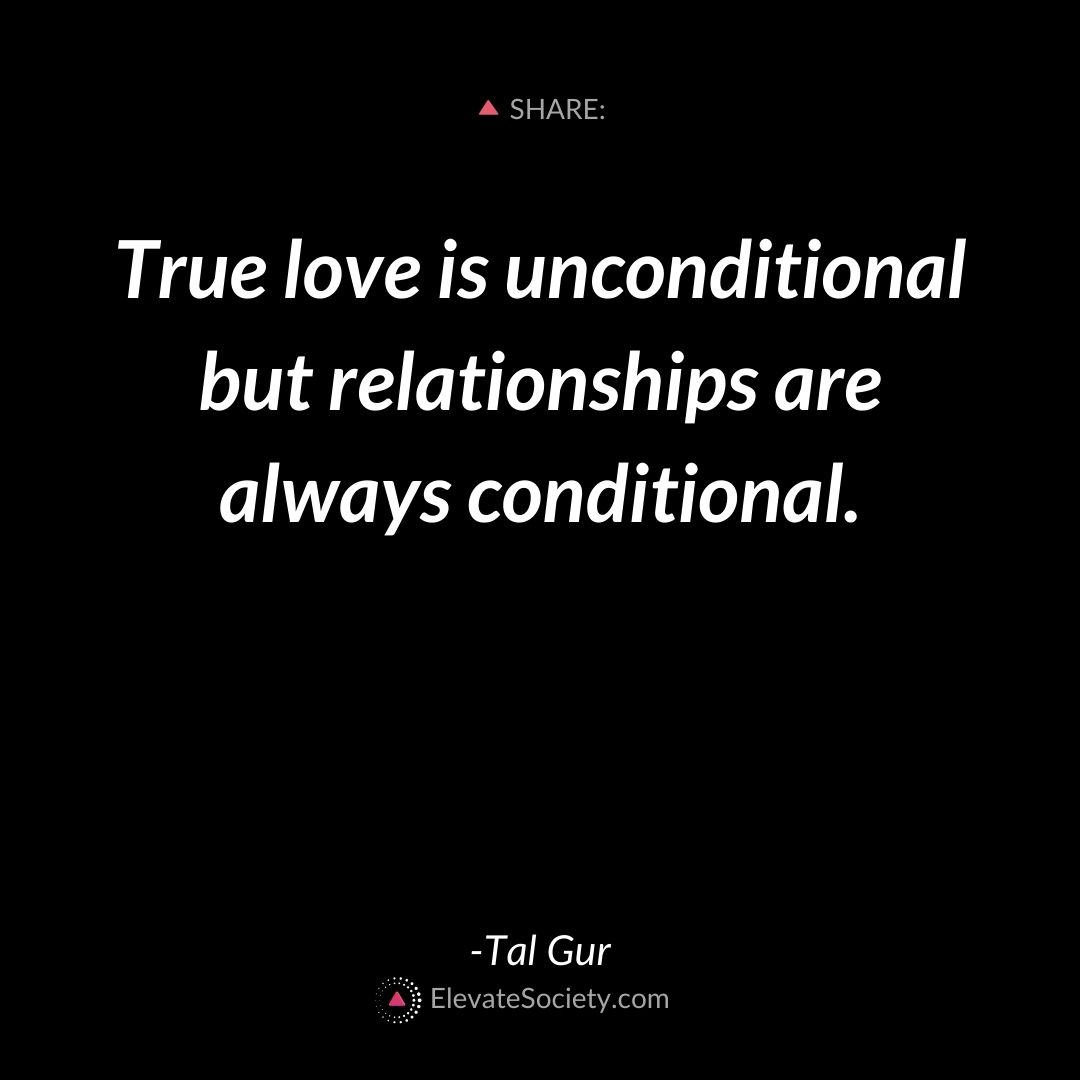True love is unconditional but relationships are always conditional.
This quote highlights the inherent complexity and duality of human relationships. In essence, it distinguishes between the pure, unbounded emotion of love, and the practical, sometimes challenging mechanics of maintaining a relationship.
True love, in its purest form, is all about accepting someone for who they are without any conditions or expectations. It's about appreciating their essence and spirit without wanting to change anything about them. However, the reality of relationships is that they are conditional - based on mutual respect, understanding, and compromise.
The quote encourages us to acknowledge and communicate our personal boundaries or "red lines" in a relationship, because these are the conditions that make the relationship sustainable and healthy. It is perfectly fine, even necessary, to have these conditions, and by setting them, we are not diminishing our love, but rather ensuring that our relationship is as nurturing, respectful, and enduring as the love that fuels it.
Picture two gardeners, each tending to their own plot of land, yet their gardens share a fence. One gardener believes in letting nature take its course, allowing weeds and flowers to grow together unchecked. The other gardener prefers order, carefully pruning and weeding, ensuring that only the chosen plants flourish. Their approaches to gardening are different, much like individuals in love, each with their own beliefs, desires, and boundaries.
True love, in its purest form, is like the sun that shines upon both gardens without prejudice. It does not choose to warm only the well-kept flowers while leaving the weeds in the cold. It gives its light unconditionally, nurturing growth and life in all it touches. This is the essence of true love—unconditional, generous, asking nothing in return.
However, a relationship, the shared space between the gardens, operates on a different principle. It's where the preferences, practices, and boundaries of each gardener must be negotiated. If one gardener's weeds begin to encroach upon the other's carefully tended plot, the harmony of their shared space is disturbed. It is here that conditions apply, where each gardener must communicate their needs, their "red lines," to ensure that both gardens can flourish side by side.
Imagine if neither gardener spoke of their boundaries, assuming the other would simply know and respect them without a word. The garden that once symbolized their shared love could become a source of resentment, with each encroaching weed or unwelcome pruning seen as a slight. It is only through understanding and respecting these conditions that their relationship—their shared garden—can thrive.
Just like these gardeners, partners in a relationship must understand that while their love for each other can be unconditional, the relationship itself requires nurturing, compromise, and a clear understanding of each other's boundaries. Knowing where these "red lines" are is not about setting limitations on love; it's about creating a space where love can grow freely and healthily, where both individuals feel respected and valued.
The beauty of this approach is in its honesty and respect. It acknowledges that love, in its truest form, supports growth and happiness, but it also recognizes that a lasting relationship is built on mutual understanding and respect for individual needs and boundaries.
As you navigate your own relationships, consider the gardens you and your partner are tending. Have you shared where your "red lines" are? Have you listened to theirs? Just like gardeners exchanging notes on how to nurture their plots, discussing your boundaries can help ensure that your shared space remains a source of joy and growth.
And so, a reflective question to ponder: In your relationships, how have you communicated your "red lines," and how have you respected those of your partner?

*To obtain more inspiration and motivation to achieve your goals, you definitely want to check out my extensive list of growth goals. This page contains SMART goal ideas that can help you establish new aspirations and attain greater heights in your personal growth journey. I utilized this page myself to create my own list of 100 life goals, which I dedicated a decade to pursuing.
Chief Editor
 Tal Gur is an author, founder, and impact-driven entrepreneur at heart. After trading his daily grind for a life of his own daring design, he spent a decade pursuing 100 major life goals around the globe. His journey and most recent book, The Art of Fully Living, has led him to found Elevate Society.
Tal Gur is an author, founder, and impact-driven entrepreneur at heart. After trading his daily grind for a life of his own daring design, he spent a decade pursuing 100 major life goals around the globe. His journey and most recent book, The Art of Fully Living, has led him to found Elevate Society.




















